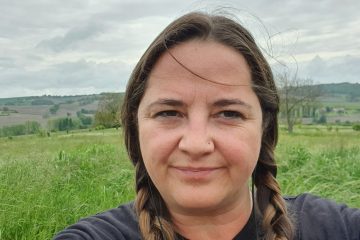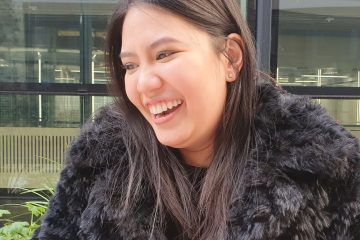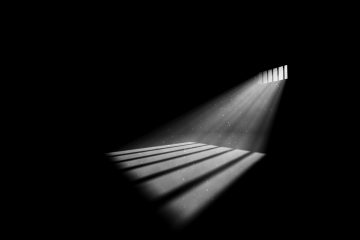Victoria Brittain meets Baran, Turkish human rights lawyer and prisoner of conscience
Victoria Britain (0:00-1:24): Hello, everybody. This is Prisoners of Conscience in London. We’re a small charity that does very crucial work helping people who have had to leave their own countries as refugees because of some act of conscience that they have undertaken. What we do is help them get grants to continue their education or tor revamp their qualifications they have in their own country to allow them to work in this country.
I’m very proud and pleased to be the Vice-Chair of Prisoners of Conscience and I’m thrilled to be able to share my conversation with Baran, who is one of our beneficiaries at the moment. Baran is a Kurd from Turkey and he’s been here in Britain for six years, and he’s just on the verge of qualifying with British lawyers’ credentials.
So Baran, my first question to you; could you just tell people about when you very first came to Britain six years ago? What was it that made you leave your home at that time and set off to be here?
Baran (1:25-3:23): Yeah, thank you, Victoria. Why I’m here, why I’m in the UK [is] because I defend the rights of people, the Kurds, I defend the rights of the human rights victims in Turkey, and because I was an activist against the brutal state policies against Kurds in Turkey. That’s why I’m here. It was very, very difficult to leave your own country, your home, your loved ones, your family, your parents, everything. But, just one day, you leave everything behind, and you go to another place.
In Turkey, maybe I first need to talk about the situation, the political situation of Kurds in Turkey. It’s from, like, the beginning of the foundation of Turkey, the Kurds as a people haven’t been recognized by the government, by the Turkish state, and have been subjected to assimilation and Turkification policies during the whole of their history. The Kurds have no basic human rights about their cultural existence and their existence as a people. Their language was banned, they don’t have any education, they can’t have any education in their own language. In the public sphere, after the 1990s the Kurdish language was banned, you can’t speak your language, your own language in the public sphere.
Victoria Brittain (3:25-4:26): Can I just interrupt you there for a second to say that this picture of Kurdish depravation of rights, as you say it’s gone on a long time, and it’s been in waves; there have been times when negotiation with the Kurdish people have been undertaken by the central government. There have been times when people, Kurdish politicians, have tried to run for office, and I think perhaps that what had happened to you seven years ago was the beginning of a new phase of arrests, depravation of, as you say, education, and people disappearing and a lot of people fleeing in to exile. Was there one particular moment that you and your two brothers all decided that you were no longer safe, [that you] couldn’t be safe in Turkey?
Baran (4:27-6:16): Yeah, because actually I was a human rights lawyer and activist in Turkish Kurdistan, North Kurdistan, we say, we call it. My point to become and exile, I was tried, I went to trial in Turkish courts and I was accused of being a member of a terrorist organization, which is a very cheap and useful tool for all authoritarian government, to label as terrorists their opponents. So, I was a human rights lawyer, I was defending my clients – politicians, ordinary people, people who were chanting in demonstrations, civil and peaceful demonstrations – because of all these things I was accused of being a member of a terrorist organization, like so many people. Most of the Kurdish people who are very active. Not even active – if you join a demonstration, you could be, like, shot your video or a photo, and while you are chanting against government policy in a very peaceful protest, you could be charged as a member of a terrorist organization.
Victoria Brittain (6:17-6:22): What kind of sentence did you fear that you could receive?
Baran (6:23-7:17): Actually, I was arrested in Turkey, I spent almost two years in jail, and after I was released on bail, at the same time my case was going on, at the end of the day they sentenced me to eight years and nine months in prison. So, I had to leave, I appealed first to the high court, but the high court refused my application. So, I had two choices: either I leave the country, or I was going to jail.
Victoria Brittain (7:18-7:20): And how did you manage to leave the country?
Baran (7:21-8:31): Actually, I left the country by legal ways. I got a visa to the UK. I had my passport. The process was, the legal process was different from here because the trials could be long, very, very long. Could take a very, very long time. First, when I was arrested it was 2006 and the last decision the higher court made it was 2013, end of 2013. It takes like seven years. So, I was released, I was on bail, but I could move freely, so there wasn’t any sanction, any restrictions on me. So, I had my passport and applied for a visa to the UK embassy in Turkey and I came to London.
Victoria Brittain (8:32-8:35): When you got here, did you speak English?
Baran (8:36-8:51): Not really. My English was very, very basic – on a very, very basic level. I couldn’t express myself easily, but I tried hard, I studied hard to learn English.
Victoria Brittain (8:52-9:19): How did it feel for you, from one minute you were a well-known human rights lawyer surrounded by a context both social and family that was your life, and then you arrived in Britain and you had great difficulty with the language, you didn’t have a social network of any sort, how did you manage to get started?
Baran (9:20-10:46): I think it was hope. Difficulties you have experienced in your previous life makes you stronger because, as I said, you have two choices: one way where you can set up a new life, the other way takes you, probably, nowhere. So, between these two choices you have to be strong and make the rights decision. You have to push yourself with your hopes, as well. This hope is like, ‘one day I’m going to make my home country, I’m going to make my family, my town…’ At least, while I was here, while I was in another place, take all the advantages of being in that place. Improve yourself, improve your language, improve your knowledge, improve your personality, and when you go back to your original country, your original place, at least you will say: ‘Ok, I have suffered a lot but at least it was worth it.’
Victoria Brittain (10:47-14:12): Well, let me say here that I think your hope and your determination over these six years is kind of like an example to many people who are in the beginning of this phase of being a refugee here. I want to take one question we’ve just had in that involves a Kurdish family in the city of sanctuary, which is York in the north of England. Here we have a husband and three children who are threatened with being deported, and the people that are looking after them there are asking: what kind of resources and knowledge can they have to help them fight against this deportation?
So, I wanted straight away to respond to those people that the UK government itself has not actually denounced human rights abuses in Turkey. But, the abuse of human rights defenders, particularly Kurds, in Turkey is extremely well-known and we in Prisoners of Conscience have given no less than six grants in recent years to human rights defenders from Turkey. And that is people like you who are lawyers and journalists, and who have gone on, with the help of Prisoners of Conscience, to be very valid operators in the fields that they would have originally come from. And I want to say to the people in York that in 2018, there’s a very good UN report on human rights abuse in Turkey, and there was another one in 2019 by Human Rights Watch, and I think those two resources are very useful to you. In addition, you can, of course, always write into the staff here at Prisoners of Conscience and somebody there will be ready to assist you with all the information that we have.
So, Baran, back to you and the new qualifications that you’ve managed to get. You’ve done a Master’s degree here, which is brilliant, well done, and I know now that you’re just waiting, probably in the next week, to get the final results of qualifying as a British solicitor, and that will, in a sense, take you back to the kind of life could have had, although of course you don’t have your family with you, but it gives you the status and the professionalism that you deserve in a British context, and of course which you had in Turkey.
I’d just like to ask you a little bit about how it is keeping in touch with your two brothers, one of them I know is in Austria and one’s in Poland, and the rest of your family, your parents and your sisters in Turkey? How do you keep the strength of that family unit alive by Facebook or Skype or by whatever you do? Could you tell us a little about that?
Baran (14:13-15:14): Yeah, sure. It’s very difficult, it used to be very difficult to speak to your family members, your brothers, your parents. Especially, for example, I spent almost two years in a jail in Turkey, but my family could only visit, have a chance to visit me two or three times, because they sent me to a very far away place from my hoe town. So, my parents couldn’t come. They couldn’t afford coming because it takes, like, two or two and a half hours by plane, and every week they can’t afford that.
Victoria Brittain (15:15-15:21): You hadn’t seen your family already for a long time before you got here. Do you miss them very acutely now?
Baran (15:22-16:55): Yeah, yeah, I mean, for example, when I was in jail they wouldn’t let us, because I had a right to phone, every week, ten minutes, but they couldn’t let us because they don’t let us speak in Kurdish. We had to speak in Turkish, but we were protesting them so we couldn’t get in touch with our families. But now you have lots of opportunities, like Facebook, WhatsApp, other things. So, it’s not very difficult to be in touch with your family, but still, face-to-face I haven’t had any conversation with my mum in almost six years. But yeah, I went to see my brothers. I went to Austria and Poland to see them. It was nice, but still we speak to each other every week a few times, so we have very strong family ties because we grew up in a very broad family environment, so many cousins and brothers, we were all raised – grew up together, so our family ties are a bit stronger. So, Facebook and other social network tools are very useful to be in touch with them now.
Victoria Brittain (16:56-17:08): Yes, that’s fabulous. Could you tell us, what was the help that you got from Prisoners of Conscience for your first degree and then later for your requalification?
Baran (17:09-19:00): Yeah, actually first I applied for my master’s degree when I applied to do a master’s degree at Sussex University. I was doing it part-time and applied for financial – a kind of scholarship to PoC to help me, and I really appreciate their help because without their help I wouldn’t [be able to] afford to do that, I wouldn’t afford the fee, because I was working part-time, I was working to afford my normal life, expenditure, expenses, and PoC helped me to pay tuition fees.
After that, after I graduated, I decided to become… to get the UK qualification as a solicitor in the UK. But the course and the exam fee is very, very expensive, almost £7,500, it was very expensive to afford it. So, I again applied to PoC and I really appreciate their help to me. Without their assistance, financial assistance, I couldn’t do that because really it’s very expensive and I don’t think I could afford the exam fee and the course fee.
Victoria Brittain (19:01-19:23): Of course, but I know that you yourself, with your work, you did manage to pay a portion of your fees which was fantastic. I just want to ask you, when you get your results later on, this week or next week, who’s the first person you’ll call to say, ‘I’m now a lawyer again’? Will it be your mum? Or will it be one of your brothers?
Baran (19:24-19:48): Probably I will call my mum and say, because she’s very curious, she’s very worried about it, she knows about it. I told her that I studied hard and we were in touch, she was always asking about my studies and my exam, and the first person will be my mum.
Victoria Brittain (19:49-20:01): Ok, and once you’ve got that, you’ve passed and you’ve got your security, would you be still prepared, or more prepared to work for Kurdish human rights?
Baran (20:01-20:30): Yes, my first aim is to work for my people. Not just my people, anybody on Earth who was a victim of human rights abuses, state oppression. I will definitely work for them, and for, as I said, for my people as well. For the Kurds.
Victoria Brittain (20:30-20:48): Fantastic, Baran. I’m so proud of all your work and everybody at PoC is so happy that we were able to help you and we’re with you in the next stage of what you do as a lawyer. Thank you very much for spending your time with people here so that people could listen to you.
Baran (20:48-20:59): I want to thank you, to PoC, and to all the donors who are listening. I really appreciate your donations, thank you very much.
Victoria Brittain (20:59-): Ok, thank you, Baran.


